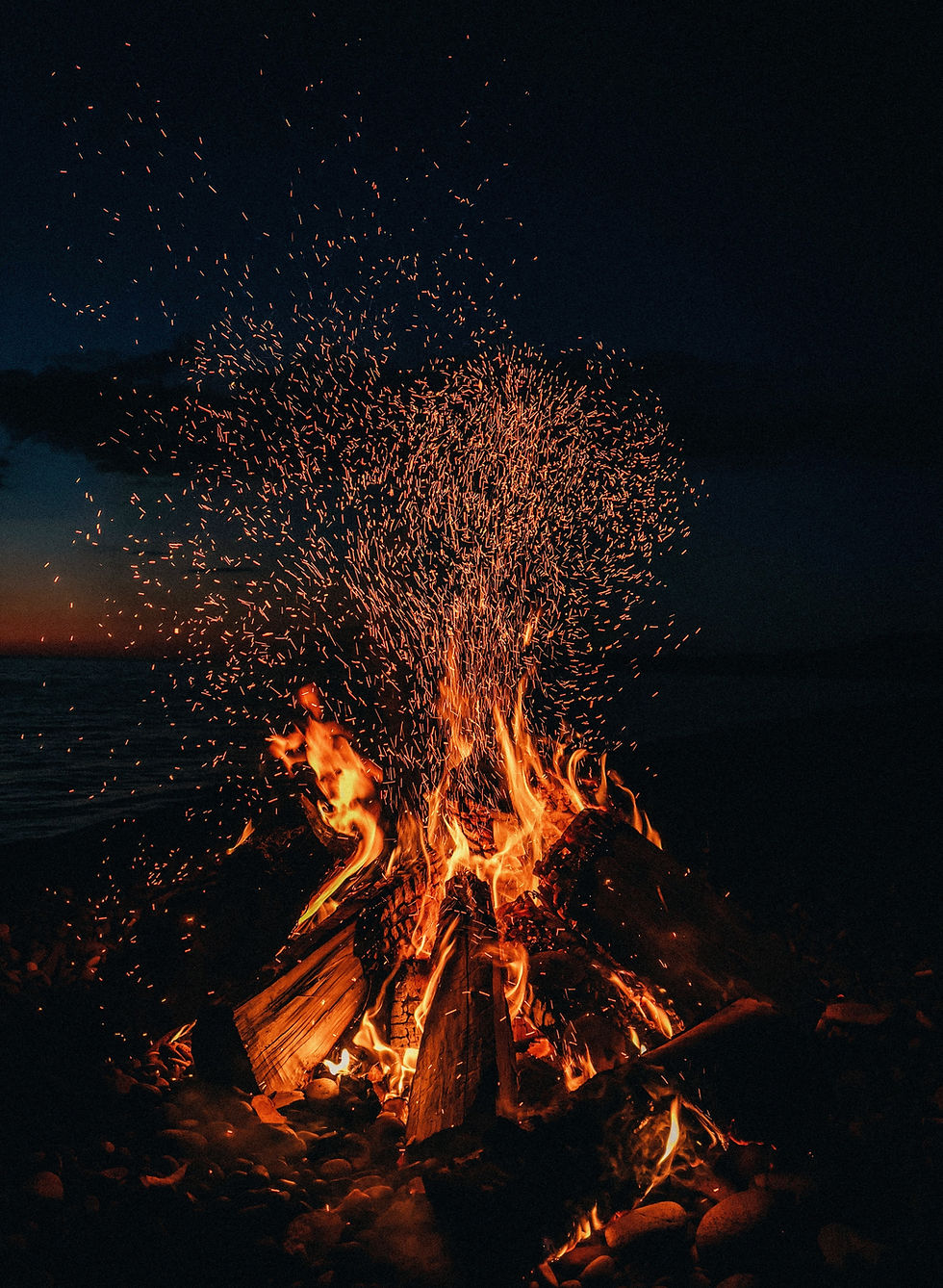Lag BaOmer: The Inner Light Of Rabbi Shimon
- Jack Levy

- May 22, 2024
- 3 min read
By Jack Levy
Soon we will celebrate Lag BaOmer, the 33rd day in a series of 50 days of counting the Omer. From a Kabbalistic perspective, these days represent a journey towards personal and spiritual development, with each day marking a step in our quest for connection and evolution. However, Lag BaOmer resonates with a special significance. This day not only marks the end of a period of mourning for Rabbi Akiva's disciples, who perished in a devastating pandemic, but also commemorates the anniversary of the death of Rabbi Shimon bar Yochai, author of the Zohar and a pillar of the Kabbalah.

The Fire of Rabbi Shimon Bar Yochai
Persecuted by the Roman government, Rabbi Shimon found refuge in the darkness of a cave where, accompanied only by his son, he spent 12 years. This period of isolation became a crucial stage of spiritual transformation, during which he immersed himself in deep meditations and studies, subsisting on carobs and water from a nearby spring. This time in the cave, a stage of the "Hermit" in the famous hero's journey, forged the teachings that would later be encapsulated in the Zohar.
Each year on Lag BaOmer, we light bonfires and celebrate in memory of this righteous man who compiled and revealed that light to the world.
What Does This Tradition Really Symbolize?

Let's first consider the fire. It's curious to think that trees, to grow, require the four elements: water, air, earth, and fire. Although we don't see flames sprouting from a tree, the fire is there, materialized in the form of wood. This energy is absorbed and stored, and when we light a bonfire, we release the solar rays that the tree absorbed during its life.
The bonfires of Lag BaOmer are not just a tradition; they are a symbol of the inner light that Rabbi Shimon cultivated in the darkness. The fire represents the soul's longing to rise, to seek truth, and divine connection.
The Oven of Achnai and Spiritual Awakenings

In Kabbalah, two essential concepts are highlighted: hitorerut D'tata (the awakening from below) and hitorerut D'Ela (the awakening from above), represented by the Written Torah and the Oral Torah, respectively. A story from the Talmud [1] profoundly illustrates these concepts.
In a controversial halachic discussion about the purity of a type of oven, Rabbi Eliezer invoked miracles to prove his point, even a heavenly voice supported his stance. However, Rabbi Joshua rejected these signs, citing the Torah: "For it [the Torah] is not in heaven," [2] establishing that the interpretation of the Torah, once given, falls to human beings. God smiled at this resolution, reflecting hitorerut D'Tata, an awakening from below, where we, as part of creation, work to continue understanding and applying divine law.
On Lag BaOmer, as we commemorate Rabbi Shimon and light our bonfires, we celebrate a unique connection: the divine light that has been given to us, symbolized by the Written Torah (the wood), and the inner light that we reveal from it, through our human discussions in the Talmud and interpretations of the Zohar. Each flame is a symbol of our personal and collective search, a reminder that we have an obligation to interpret, debate, and ultimately chart our own path towards deeper connection and spiritual transcendence, ascending toward spheres closer to our Creator, guided by the eternal fire of the Torah.
Referencias:




Comments